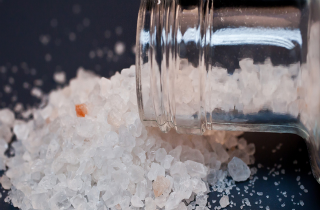Perhaps you’ve heard of bath salts or the meth epidemic. Now, a new synthetic drug called Flakka has hit the market…
But, what is Flakka? If you want to learn more about Flakka abuse, addiction, and treatment considerations…read here in our Flakka Addiction Treatment Programs and Help guide. In this article, we review the drug Flakka as well as the consequences of its use. We also explore why addicts use drugs in the first place, and invite your questions or comments at the end.
Horrible New Designer Drug Hits the Streets
A new designer drug called “Flakka” has been showing up on the streets of Florida, Texas and Ohio, and its effects are truly frightening. Due to the way the drug acts upon neurotransmitters, it can trigger anxiety, paranoia and delusions, which in turn can lead to a psychotic state. Tendencies toward violent behavior coupled with increased strength and loss of awareness of reality mark this substance as a problem for authorities and communities.
In one case in Miami a man ran out of his home, screaming and ripping of his clothes in a violent rage. He was perspiring, paranoid, delusional, and hallucinating after smoking Flakka. It required five police officers to subdue him.
What is Flakka?
Flakka is a synthetic amphetamine-like substance similar to the family of drugs known as cathinones, commonly referred to as bath salts. Just as bath salts are addictive, so is Flakka highly addictive both physically and psychologically, and can be smoked, inhaled, swallowed, or injected. Since it can also be vaporized, it’s use in an e-cigarette makes it hard to detect even when used in a public setting.
The drug is synthesized from a compound derived from khat, a plant grown in the Middle East and parts of North Africa that has been used traditionally to produce, when chewed in leaf form, a moderate high. As with cocaine, which when used traditionally by chewing coca leaves, the synthetic or distilled product has a vastly more powerful and deleterious effect. In the case of Flakka, the drug inhibits the re-uptake of dopamine and norepinephrine, two crucial neurotransmitters affecting mood and normal brain function. The result is a prolonged effect of what is known as “excited delirium.”
Danger: Flakka Hits the Market
Flakka typically comes to the U.S. through three main supply points: China, Pakistan and India. By the time it hits the streets, it has likely been adulterated in a number of ways. The U.S. Drug Enforcement Administration (DEA) reports no statistics involving the drug in 2010, 85 cases in 2012, and 670 in 2014. In Fort Lauderdale, the police have formed a special unit to deal with Flakka in anticipation of an increase in use.
One reason for the emergence of this new designer drug is that it is relatively cheap: an eighth of an ounce of Flakka costs about $150, or about one third the cost of an equivalent amount of crystal meth. At five dollars a single dose-one with effects lasting three to four hours-the drug has appeal to low-income users, although teens experiment with it for its euphoric effect.
Why would anyone become a Flakka drug addict?
As with bath salts, Flakka has a reputation on the streets for having the potential to produce highly unpleasant results, but that doesn’t seem to stop the spread of its abuse. This of course brings up the question of motivation: Why would anyone purchase a drug with known consequences as dire as those of Flakka?
The problem of addiction starts with the problem of the addict’s condition between highs. There is something radically unsatisfactory with the individual’s experience of life and self, to the extent that the addicted brain puts a premium on the possibility of relief from its condition via a drug and discounts the potential cost.
Consider the drug Krokodil, a homemade drug that has horrific effects that are publicly known and yet consumers continued to use it. Denial includes a mindset of exemption from consequences, and so drug abusers are inherently compromised when it comes to making decisions regarding their self-interest.
What can you do about Flakka?
If drugs exert such a strong pull on you or a loved one that they have priority over healthy pursuits: social, recreational, educational and professional. For these people, treatment is the best option. Without help, an addict is trapped in a spiral of self-defeat and continued abuse. Recovery through treatment offers not only freedom from dependency but also an entirely new life of hope and possibility.









Related Posts